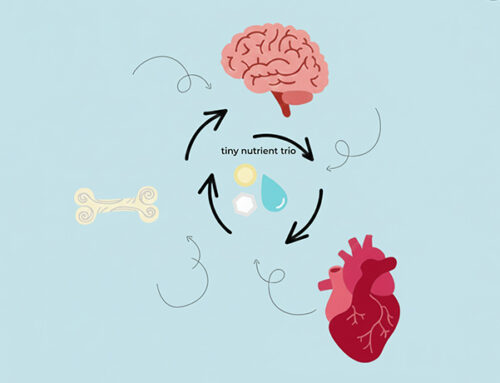The intersection of diet, lifestyle, and the microscopic universe within us plays a pivotal role in our overall health. For men, acknowledging the significance of gut health is not merely about preventing the discomfort of an irritable stomach; it’s about embracing a comprehensive wellness.
The Importance of Gut Health for Men
Digestion is more than a mechanical process; it’s a critical component of our body’s ecosystem. For men, a digestive system underpins not just physical but also mental fortitude. It’s the main system upon which health is built, influencing everything from the immune system to emotional stability.
What is the Gut Microbiome?
The gut microbiome, an intricate community of bacteria, viruses, fungi, and other microorganisms, is an astonishing universe within us. It’s a complex ecosystem where microbes synthesize vital vitamins and minerals, break down food particles, and form a formidable barrier against pathogens.
How Gut Health Affects Overall Wellbeing?
A balanced gut microbiome produces the symphony of our body’s functions. It’s not hyperbolic to assert that gut health is intertwined with our immune system’s efficiency, inflammatory responses, and even the impulses of mood swings.
The Science Behind Gut Health and Men’s Health
Research explains a real link between the gut’s flora and men’s health, ranging from metabolic processes to the modulation of hormones. A balanced gut microbiome can alleviate symptoms of conditions such as irritable bowel syndrome and anxiety.
Tip 1: Balanced Diet for a Healthy Gut
Fiber acts as the invincible to gut health, facilitating not just regularity but also nurturing a diverse microbiome. It’s the unsung hero that supports the proliferation of beneficial bacteria.
Probiotics: Gut Health Superheroes
Probiotics, the live microorganisms found in fermented foods, are at the forefront of gut health. They bolster the ranks of friendly bacteria, aiding digestion and keeping contemptible pathogens at bay.
Prebiotics: Fueling Good Bacteria
Prebiotics are the nourishment that nurtures the beneficial bacteria. They are the fibrous compounds that escape digestion and ferment in the colon, offering a banquet for good microbes.
Foods to Avoid for Optimal Gut Health
A litany of foods, especially those high in sugar and unhealthy fats, can incite a maelstrom of gut inflammation. Such dietary villains can disrupt the delicate equilibrium of our internal flora.
Tip 2: Hydration and Gut Health
Water is the medicine of life and a catalyst for digestive enzymes. It’s instrumental in the alchemy that transforms food into nutrients.
Signs You’re Not Drinking Enough Water
Dehydration sends a cascade of signals—bloating, constipation, and lethargy are just a few of the distress flares our body sends up when water is scarce.
Tip 3: Exercise and Its Benefits to Your Gut
Regular physical activity is a clarion call for a diverse microbiome. From brisk walking to strength training, exercise churns the wheels of gut motility.
The Link Between Physical Activity and Gut Bacteria Diversity
Exercise doesn’t just sculpt the body; it sculpts the microbiome. Physical exertion enriches the variety of bacterial species in our gut, each playing a distinct role in our health tapestry.
Tip 4: Stress Management for a Healthy Gut
Stress is the insidious saboteur of gut health, capable of unbalancing the microbial equilibrium, leading to an increased risk of gut-related diseases.
Mindfulness Techniques to Improve Gut Health
Mindfulness and meditative practices are not just balm for the psyche; they can quell the flames of gut inflammation and restore microbial harmony.
The Role of Sleep in Maintaining Gut Balance
Sleep is the great regulator, not only of the mind but of the gut as well. It’s during these restful periods that the gut microbiome can recuperate and rebalance.
Tip 5: Avoiding Harmful Substances
Alcohol, in excess, is a veritable storm for the gut, capable of altering the microbial composition and inflaming the gut lining.
How Smoking Damages the Gut Lining?
Smoking is a scourge on the gut, devastating the mucosa and facilitating harmful bacteria overgrowth.
Supplements for Gut Health
Probiotic supplements, the concentrated allies of gut health, can replenish our bacterial ranks. Yet, they’re not a cure-all and should be taken judiciously.
Which Supplements to Consider for Gut Health?
When selecting supplements, one must consider strains of bacteria proven in the crucible of clinical trials, aiming for the most potent benefits.
Understanding and Managing Food Intolerances
Identifying foods that trigger our immune system is the first step in managing food intolerances.
The Elimination Diet
The elimination diet is a method to identify the dietary offenders that disrupt gut harmony, conducted with the precision of a scientific experiment.
How Gut Health Changes as Men Age?
As the seasons of life change, so does our gut health. Adapting to these changes is key to maintaining a flourishing microbiome. A diet that evolves with our gut’s needs can uphold the integrity of our intestinal fortitude well into the twilight years.
Regular Health Check-Ups
Regular medical consultations are the keepers of our health, offering early detection and management of gut health issues.
When to See a Doctor About Gut Health
Understanding the signs that herald gut health issues is essential, as is seeking professional advice when these symptoms persist.
Conclusion
The ideal gut health lies in diet, hydration, exercise, stress management, and avoiding harmful substances. Gut health is not a sprint but a marathon, demanding a steadfast commitment to the practices that keep our internal ecosystem thriving.




